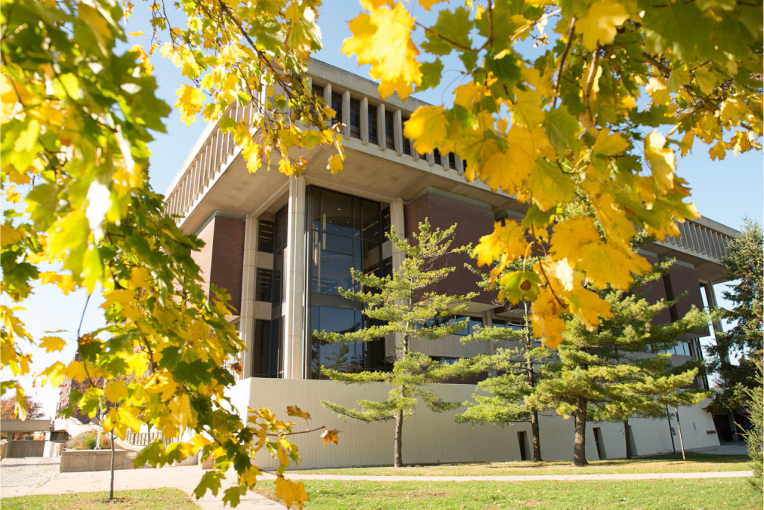Milner Library is pleased to announce the opening of a Digital Scholarship Lab in room 165. Interest in digital humanities at Illinois State University was documented before the global COVID-19 pandemic and persists today. Students and faculty alike use digital tools and platforms to enhance their research, and this will only increase in the future. With open lab hours weekly on Sundays, Tuesdays, Wednesdays, and Thursdays, the lab provides a space for students and scholars to explore digital scholarship tools and community for those who embrace these processes.
The lab features 11 Dell Precision 3650 Workstations with the following specifications: Intel Core i9-11900K 8-core, 16 thread, 3.5 to 5.3GHZ CPU, 64GB DDR4 RAM, NVIDIA RTX A4500 w/ 20GB GDDR6 VRAM, and 2TB PCIe NVME SSD. Specialized equipment includes two Epson 12000XL Graphic Arts Flatbed Scanners and two Meta Quest Pro’s with 256GB Storage. In addition to software available across campus, the lab machines also have Zoomtext Fusion 2023, ABBYY FineReader, and OxygenXML, among others. Please visit the Digital Scholarship Guide to explore related offers and opportunities
Fall open lab hours are Sundays: 3-8 p.m., Tuesdays: 4-8 p.m., Wednesdays: 4-6 p.m., and Thursdays: 4-8 p.m. The lab is staffed by two Illinois State graduate students with considerable experience in digital scholarship.
Shinjon Ghosh, a graduate student with expertise in R, SPSS, SAS, Tableau(basic), Python(basic), and MySQL, has significant experience assisting faculty and students with data analysis. His “Case Study Concerning Airplane Accidents on a Global Scale” used a variety of data sources to conduct forecasting for air accidents. Yashaswini Mekala, a graduate student in computer science, is well versed in programming languages like C, C++, Java, Python, and JavaScript. She contributed to “Analysis of Women’s Safety in Indian Cities Using Machine Learning on Tweets,” leveraging social media to explore timely and important issues. Ghosh or Mekala will be available during lab hours to answer questions about lab technology and support users.
Rebecca Fitzsimmons has written and presented on digital scholarship methods in the humanities and is a frequent facilitator of digital humanities workshops for the Center for Integrated Professional Development. Rachel E. Scott is a librarian with a Ph.D. in historical musicology. Her research has utilized data scraping methods to consider what YouTube performances can tell us about the reception of 19th century Lieder (German-language classical songs) among contemporary performers. If you’d like to schedule the space for your class, please reach out to Fitzsimmons (rlfitzs@ilstu.edu) and Scott (rescot2@ilstu.edu).
If your scholarship would benefit from data analysis, data visualization, data mining, digital exhibits, or other digital scholarship approaches, we encourage you to visit open lab hours or reach out to Fitzsimmons and Scott.

